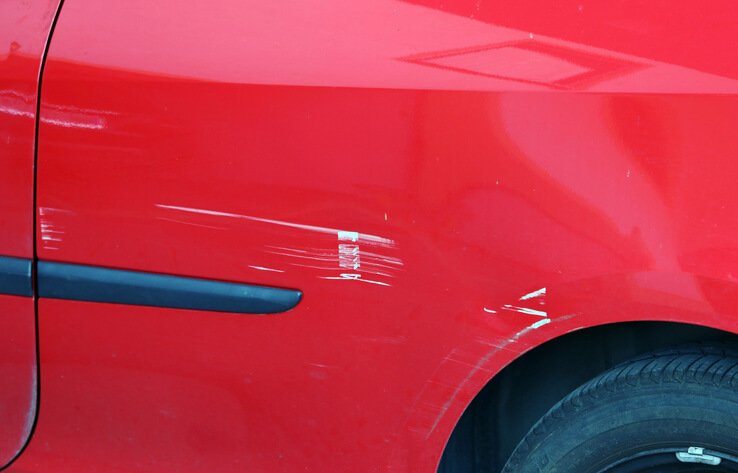How do I repair scratches on my car?
Matilda Douglas-Henry
For someone who cares
about their car, there’s nothing more irritating than an unsightly scratch on
one of your panels. Scratches are a common occurrence that can happen due to a
gamut of obstacles, from the benign—branches and debris—to the vindictive: your
vehicle might be vandalised. Fortunately, the ubiquity of a car panel scratch
means that repairs are easily accessible and efficient, and shouldn’t cost you
too much either. Read on to learn everything you need to know about how to
repair your car’s scratches, including:
- How to know whether your car’s scratch needs to be repaired
- The different types of repairs your car’s scratch may need
- How to prevent car scratches

How do I know whether my car’s scratch needs to be repaired?
Car scratch repairs
are measured by the length and depth of the scratch. In our “Car paint repair” article we recommended a
personal assessment of running your
finger across the place of impact.
A deep scratch will feel like a ridge: in this instance, the paint has been cut into, and is probably exposing the metal beneath it which creates risk of oxidation. A superficial scratch, where only the top layer of paint has been affected, will feel thin, like a piece of paper[1].
What are the different types of repairs the scratch on my car might need?
If your scratch is surface-level,
it might be able to be easily buffed out. While DingGo typically does not
advise performing these tasks yourself, some scratches are so superficial that,
if you have the right materials, it may well be very straightforward for you to
use a DIY method.
Once you have determined that the scratch is indeed very light using the finger method, a generic scratch and swirl removal product might be the go for you. These products consist of polishing agents that can remove light surface blemishes and other imperfections. They are cheap, single use and easy to apply, and work instantly[2].
If you have any doubt of the severity of the scratch, however, take it to a technician. There is never any harm in receiving a second opinion, and cutting costs for efficiency purposes can often lead to more serious problems down the road. In many cases, a technician will be able to use S.M.A.R.T—Small and Medium Area Repair Technologies—to repair the scratch. This means that the repairs can be isolated to the affected area without resorting to panel beating.
During S.M.A.R.T repairs, the scratched area will be sanded and filled, then dried with a heater. Once the entire area is rubbed down, it will be spray painted, lacquered, and polished. If the paintwork has been damaged, the scratch will also have filler and paint applied[3]. Once the process is complete, the scratch should be unnoticeable, effortlessly blending in with the surrounding panels.
When your scratch is deeper or generally more severe, your vehicle will likely require extensive panel beating. This may include: a more complex paint repair, applying special fillers, and in some extreme cases replacing, rather than repairing, the entire panel. If your technician has no choice but to opt for panel beating, prices will rack up, and could be off-road for significantly longer[4].
How to prevent car scratches
In many ways car
scratches are unavoidable; there is only so much you can do when nature and the
elements are at play, particularly in a country like Australia. Whenever
possible, park your vehicle in a
sheltered location—ideally a car port—and avoid leaving your car unattended
in unfamiliar areas for long periods of time, especially at night.
Conclusion
Car scratch repairs
are, for the most part, easy and affordable, especially if you deal with them
in a timely manner. Use DingGo’s quick quotes service today to find the best
technician in your area.
